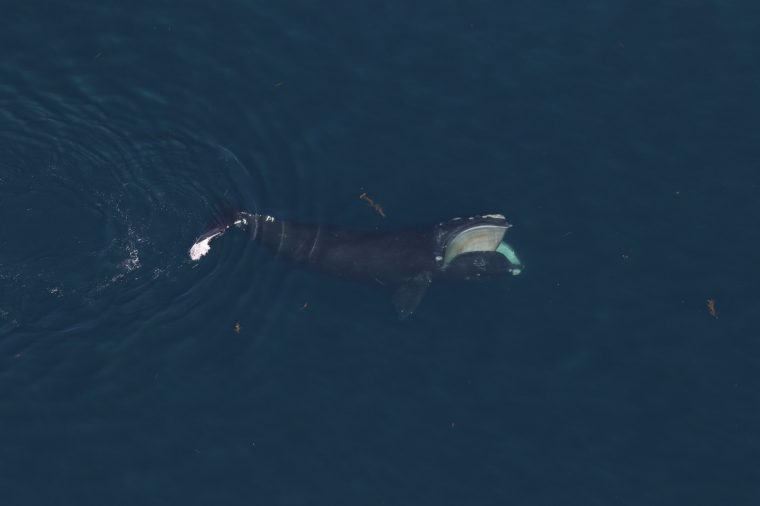Please note: We strongly recommend purchasing tickets in advance to guarantee entry, as we do sell out on weekends.
Study builds on recent research showing impacts of climate change on the critically endangered species

BOSTON, MASS. (June 28, 2022) – Climate change is impacting where North Atlantic right whales spend time throughout the year, New England Aquarium research finds.
The study published in Global Ecology and Conservation examined the impacts of climate change on the rapidly warming Gulf of Maine ecosystem, analyzing how an earlier start to spring could affect the number of right whales using Cape Cod Bay. Researchers found that years with earlier springs had higher right whale abundance in Cape Cod Bay, suggesting that the whales may be using regional temperatures as a movement cue.
“Right whales are changing where they spend time as temperatures increase and our seasons shift. The cascading effects of climate change are challenging our existing knowledge of when and how right whales use different habitats in the ocean,” said Dr. Laura Ganley, an associate research scientist at the New England Aquarium.
North Atlantic right whales are a critically endangered species, with an estimated population of less than 350 individuals. Shifts in right whale habitat use caused by climate change make it more challenging to protect the whales from vessel strikes and fishing gear entanglements, because they are using habitats at different times and to a different extent than they have historically. In recent years, the whales have abandoned the historically important habitat of the Bay of Fundy and have shown up in larger numbers in the Gulf of St. Lawrence, Nantucket shoals, and Cape Cod Bay.
Using a causal modeling technique, the scientists determined that when the first day of spring occurs earlier, the temperature cue directing right whales to Cape Cod Bay occurs earlier, extending the amount of time whales are spending in this habitat.
“We expected years with earlier springs to have higher densities of prey. Instead, we found lower densities of right whales’ primary food source, a type of zooplankton called copepods. The higher number of right whales and lower prey availability could lead to a mismatch between predator and prey,” said Ganley. “Declines in the health of right whales observed in recent years could unfortunately be a warning sign that the whales’ nutritional needs are not being met.”
The study builds on New England Aquarium research published earlier this month that revealed right whales’ peak use of Cape Cod Bay has shifted almost three weeks later over the past 20 years. The research, coauthored by Ganley, suggested that highly migratory marine mammals can and do adjust the timing of their habitat use in response to climate-driven changes in their environment. Taken together, these studies suggest that right whales are using Cape Cod Bay for a longer period of time and that their peak usage of Cape Cod Bay is occurring later within this time period. In the Gulf of Maine, one of the fastest-warming ecosystems in the world, climate change and accompanying management challenges have led to reductions in economically valuable fisheries, such as Atlantic cod, and critically endangered species such as the right whale.
“Water temperatures will continue to warm throughout the winter and spring,” said Ganley. “Conditions that were previously typical of April may be more typical of March in the future. Identifying and mitigating the effects of climate change on our ocean ecosystems is an important component of saving North Atlantic right whales from extinction.”
MEDIA CONTACT:
Pam Bechtold Snyder – psnyder@neaq.org, 617-686-5068
